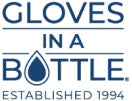What is Eczema?
A group of medical conditions where the skin becomes very dry and itchy is known as eczema. It causes the skin to become scaly and makes it itchy. The most common areas where eczema occurs are knees, wrists, hands, or feet. At least 10% of the US children population suffers from eczema before the age of five. The cause of eczema is unknown. A person who has eczema may have an overactive immune system or may be allergic to certain substances. There is no cure for eczema. The best treatment for it is to keep the symptoms under control and prevent flare-ups from occurring. Conditions that dry-out and irritate the skin lead to eczema flare-ups. Flare-ups tend to occur more frequently in winter. The dry air and the heat from heaters can dry out the skin and cause it to become more irritated.
Ineffectiveness of Barrier Creams
Barrier creams are skin products that moisturize the skin. They create a physical barrier between the skin and the surrounding contaminants. They protect the outermost layer of the skin. People with eczema have a damaged skin barrier, which makes their skin more sensitive to contaminants including bacteria. The damaged skin barrier makes it tough to keep water in. Genetics or substances that irritate the skin usually cause hand eczema. Hand eczema is commonly found among people who work in areas such as healthcare, mechanics, catering, or cleaning. In these jobs, people’s skin comes in contact with many substances. Some of these substances may be harmful for the skin. Barrier creams are not effective for eczema and not providing the appropriate moisture to protect the skin. Sometimes, they tend to draw out the natural moisture of the skin. This causes the skin to become even drier.
Why Don’t Barrier Creams Alleviate Eczema Flare-Ups?

During eczema flare-ups, the skin becomes very irritated. Flare-ups also cause the skin to become dry, inflamed, and extremely itchy. Barrier creams should not be applied directly to irritated or broken skin. Sometimes, barrier creams are not as protective with eczema as they claim to be. When the skin is broken or cracked, ingredients from the barrier cream enter the skin and cause it to become more irritated. The skin may also become dependent on the barrier cream. This causes the skin to become dry and irritated when the person stops using them. Also, barrier creams can be poorly water-resistant and can be easily washed from the skin. They may also temporarily cover the eczema symptoms and are not able to travel through the layers of the skin. Therefore, the best treatment for eczema is to maintain and keep the natural skin moisture, and not create an artificial one.
How Can Shielding Lotions Help with Eczema Flare-ups?

The cold weather can become your skin’s enemy, especially when you have eczema. Eczema flare-ups are common during the winter weather due to the air being drier than usual. Indoor heating systems can also cause the skin to become dry. During winter, wearing multiple layers of clothing, taking hot showers/baths, or using too many blankets may all lead to the skin becoming more irritated.
Shielding lotions, compared to traditional barrier creams, help with preventing irritants from entering the skin. They are known to “keep the good stuff in and the bad stuff out.” Their function is to bond with the outer skin cells, lock-in the skin’s natural moisture and oils, and allow the skin to breathe. These lotions also assist with remaking the natural skin barrier. It is the natural moisture of the skin that can best protect itself from the surrounding irritants. When the natural moisture of the skin stays in, the skin is able to heal from the outside and the inside as well. Shielding lotions like Gloves In A Bottle is the best solution. It helps manage eczema flare-ups and is the perfect natural skin treatment. It allows the skin to come up with its own method of protection, rather than relying on an artificial source.
Shielding lotions, along with saving time, save money as well. As barrier creams are not long-lasting, you may be forced to continuously purchase more. If the barrier creams don’t work, the person may also think of visiting the dermatologist. This all adds up and becomes very expensive. Shielding lotions, along with being long-lasting, also save you from often visiting the dermatologist. Overall, shielding lotions are a money-saving method, especially for skin conditions such as eczema.
Tips that can Help Control Eczema Flare-ups During Winter

- Avoid the use of barrier creams or other lotions that draw the moisture away from your skin
- Moisturize using a shielding lotion instead, such as Gloves In A Bottle.
- Do not abruptly expose your skin to the changing temperature. Staying inside more often can help maintain body temperature.
- Protect sensitive areas that are susceptible to eczema flare-ups, especially your hands. Wear gloves or mittens during the cold weather to prevent the cold and dry air from touching your skin and causing it to become dry and irritated.
- Avoid hot water. Do not use extremely hot water to take showers or wash your hands. Also, do not suddenly use hot water; your body temperature is cold – wait for your body to become warm and then use warm water to shower or wash your hands
- Use a humidifier at home to prevent your home from becoming dry due to the indoor heating system.

